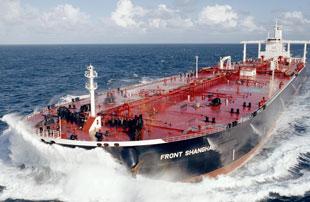When a company's stock is trading for less than the liquidation value, what does this mean?
Book value of a stock is often overlooked when buying stocks. Why is this? Because the value of a company is often in how profitable it would be, not in its liquidation value. For example, if ACME Corp. earns $10 a share and shares are selling for $100, then it has a P/E ratio of 10, which is pretty good. For each dollar invested, the company is earning 10% profit, which hopefully is paid back to you as dividends or in increased value of the stock.
In most cases, the actual VALUE of the assets of ACME Corp. are considered irrelevant. Old factories and such are not worth much, in terms of liquidation - and in fact may be a liability. If you closed the company and sold off all the machines and the desks and computers and the building, well, you'd end up with pennies on the dollar, in most cases.
But if the company is profitable for the long-term, that is really all that is relevant, not its book value.
So the "Book Value" of a company is often never looked at. And the Price to Book ratio is usually not an issue:
About Price to Book Ratio
The price to book value is a financial ratio used to compare a company's book value to its current market price. Book value is an accounting term denoting the portion of the company held by the shareholders at accounting value (not market value). In other words, book value is the company's total tangible assets less its total liabilities.
The ratio has two calculation methods. In the first way, the company's market capitalization is divided by the company's total book value from its balance sheet. The second way, using per-share values, is to divide the company's current share price by the book value per share. In general, a low price to book value indicates that a stock is undervalued and thus more desirable.
In theory, if you purchased stock with a price to book value less than 1 and the company immediately went bankrupt, you would gain money on your investment. In reality, this may not be true since there are times when liquidation value, or the price at which a company's assets can be sold, is less than the book value of those assets.
Say, for example, you bought stock in Knights Bridge Tankers (VCCLF), at $14.90 a share, and they closed the company and sold all the assets at "book value", you would get your money back, plus ten cents a share, as the stock has a book value of $15 a share right now. This is unusual in most any circumstances, particularly a stock with a P/E ratio of 12 and a dividend rate of over 13%. One of two things is happening - either the stock is very undervalued, or someone knows something that you don't.
Often, it can be the latter - buyer beware!
What could that something be? That the company is teetering on the verge of bankruptcy, for example. But with a Current Ratio (ratio of assets to liabilities) of 6.33, this would seem not to be the case. Unless they are cooking the books, the company has more than six times in assets as it has in liabilities. Or course, those assets could be overvalued, or could be the kinds of things that are not easily liquidated (petroleum tankers, for example).
It is an interesting thing to consider. It is rare you see a company trading for less than its book value. Most companies trade at many times their book value - usually a factor of 6-10 or more.
Book Value is usually only an odd footnote.
What is going on in the Shipping Business? Bankruptcy. Ships ordered in 2007 are hitting the water today, when demand is down - for super tankers. So lease rates are dropping, and investors are nervous. The resale value on used tankers is close to their scrap value. Many may be scrapped - as much as 5% of the world fleet. This may bring up rates somewhat, but perhaps not enough to make a profit.
On the other hand, if the Chinese keep buying oil, demand for oil shipments may rise. And as our economy recovers, we will likely buy more oil as well. Things could turn around, and while some tanker companies may go bankrupt, not all of them will.



